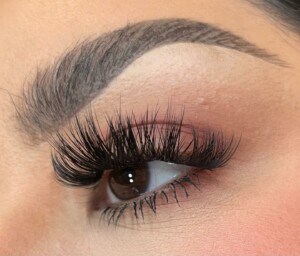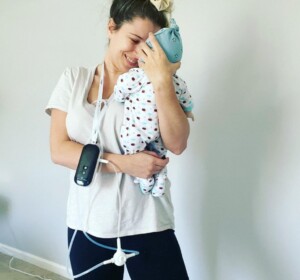We may earn an affiliate commission from partner links on the Entrepreneur Guide. These do not affect our editors’ opinions.
It’s easy to let financial situations get out of control, especially when economic conditions are uncertain. To create a balanced budget, you need a good understanding of where your paycheck is going. It’s important to take a look at what you value most to best understand what you should be spending those hard-earned dollars on.
Choosing between wants and needs takes work. While certain things may seem like necessities for some, to others, they may be extravagances they can live without. Creating that balance is crucial to forging a robust financial future. Here are a few ways to break down your wants and needs to get a better handle on your bank account!
The Hierarchy of Needs
Everyone has basic needs, though the specifics may vary from person to person. Psychologist Abraham Maslow developed a hierarchy of needs that illustrates the essentials that most humans must fulfill to feel satisfied with their lives. The ladder, from lowest to highest, lists these important essentials:
- Psychological Needs: The basics of air, water, food, and shelter.
- Safety Needs: Employment, personal security, health, resources.
- Love and Belonging: Friendship, intimacy, and a sense of connection.
- Esteem: Feeling respected within your spheres of influence, freedom.
- Self-actualization: The desire to improve yourself.
Maslow hypothesized that people need to fulfill the lower needs on the hierarchy before they can satisfy those higher up. Without the stability of the level that comes before it, other needs are on fragile ground and can become unstable. When distinguishing between wants and needs, it’s crucial to check where they land on the hierarchy so you know if it’s worth your time and money.
Making the Distinction
No two people’s needs and desires are going to be exactly the same. While there are basic essentials that humans can’t live without, moving up Maslow’s hierarchy leaves room for a lot of variation between individuals. Once basic needs are met, you can start branching out to fulfill other, less critical (but no less important) essentials. These concepts can be broken down rather simply in the following way:
- Needs: Basic living expenses, including rent, mortgage, groceries, utilities, and medication.
- Wants: Things that people choose to buy but can live without, such as entertainment, dining out, and monthly subscriptions or memberships.
In addition, while everyone needs shelter and food, those basics won’t be the same for every person. Medical conditions and financial restrictions can limit choice, making every decision count.
Clothing

While it is a basic necessity, some people confuse purchasing clothes as a need instead of a want. If a person’s closet is filled with threadbare shirts, jackets, and pants, hunting for a new wardrobe makes perfect sense. However, if your wardrobe is overflowing with options, choosing a shopping trip as a weekend activity probably isn’t the best idea.
Even so, spending money on quality clothes shouldn’t be considered a waste. Shopping for Boho women’s clothing by Johnny Was is a great way to get superior options that are sure to last longer than fast-fashion brands found in big-box stores. While you may not be able to afford to fill a walk-in closet, the pieces you pick up will be part of your signature style for a long time.
Medical-Related Attire

There are certain things related to your health that are obvious essentials, such as medications and doctor’s visits. Avoiding those necessities can lead to much bigger problems down the road than an unbalanced budget. Some of the things that are health-positive may not fall under your idea of an essential. For example, those suffering from diabetes may require products like a pair of Comrad Socks compression socks to help regulate blood flow. While socks may not feel like a necessity, spending cash on a few pairs is still a worthwhile investment in foot health.
Calming Products

There may be other aspects of your health that aren’t required by a physician but are still essential parts of a daily routine. Many people find value in the medicinal properties of CBD products, even if they don’t require a prescription. Using the Blue Forest Farms selection of CBD oils, edibles, and ointments can help alleviate feelings of stress and anxiety that allow you to think more clearly and be more effective at work, both benefits that help you fulfill other basic needs as well.
Ethics in Beauty

It’s not just physical needs that need attending to. Higher up the essentials hierarchy, Maslow indicates needs such as how you feel about yourself are essential to living a fulfilling life. This ties into people’s ethical decisions, which can have a major impact on their wants versus their needs. Deciding on a more ethical option fulfills an intangible need that stands apart from the more basic necessities, but is just as emotionally impactful.
Consumers are faced with ethical dilemmas daily. You may need to decide whether a particular company deserves your business, even if they offer some necessities at a lower cost than more socially acceptable businesses. Choosing a cruelty-free eyelash extension kit by Lashify instead of cheaper options may not save you much money, but it will support your values in a very positive way.
Who Determines Essentials?
Sometimes it takes a dramatic event to help people assess what qualifies as a need. During the COVID-19 pandemic, ubiquitous items, including hand sanitizer, paper goods, and common medical supplies became exceedingly difficult to find. As employees around the globe fell ill, supply chain issues arose and limited many people’s access to a number of products. As such, the population reevaluated what was considered essential during this time of crisis.
These emotional ties to “necessity” can dramatically affect how you view your monthly expenditures and actions. In addition to essential goods, the pandemic also restricted activities and events. What may have been an easy decision about attending a sporting event becomes an evaluation of health and budgeting concerns. In the end, you are the only person who can decide which aspects of your life are needs and which are wants.
Finding a Balance With Budgets
The idea of creating a budget is scary to many consumers. A lot of people are afraid that a close examination of their monthly expenses will reveal some awful truth about living outside of their means. Having a record and plan for monthly expenses does more than help create a well-grounded financial future—it also helps to alleviate the stress involved with paying monthly bills.
Another downside people see when creating a budget is balancing out their wants and their needs. This means discovering “needs” that are really “wants” or places where fun activities are replaced by boring but essential purchases. A great way to feel like you’re working to live instead of living to work is by creating a 50/30/20 budget system. The method breaks down as such:
- 50% of your earnings go to necessities like rent, mortgage, food, and utilities.
- 30% of finances can go to wants, the things you don’t really need but make life easier and more fun.
- The leftover 20% goes towards savings and debt relief.
By structuring your budget based on this principle, you’ll still be spending money on the things you want while being able to afford what you need. In addition, carrying over funds from one month to the next will make it easier to justify spending part of your budget on more expensive purchases.
Extravagance vs. Economics
Sometimes it’s important to determine if a specific brand of product is necessary, or if a more economical option will do. While it can feel more fulfilling to have that Chanel purse or Rolex watch, in reality, they only cater to superficial notions of gratification. Finding the branding balance is vital to ensure you are spending money in the right places.
Maternity Clothing

Choosing higher-end products, such as Hatch’s wide assortment of maternity leggings, is preferable to more inexpensive alternatives if you’re planning to have multiple pregnancies. Look for brands that can act as traditional leggings after the baby arrives, giving them lasting appeal.
Sporting Events

Event tickets: While supporting your favorite team or athlete may be ideal, it’s not the only way to enjoy a sport. Shopping at TickPick for inexpensive UFC tickets may even help you find the next big fighter or witness an unexpected comeback!
Sourcing Other Alternatives

There are many ways to transform some of your more wasteful spending habits into purchases that fit within your budget. Instead of using a credit card to pick up an expensive perfume or cologne, a quick search online can help you find other options that are just as pleasant. The Editorialst’s recently featured Replica perfume dossier lists a wealth of alternatives that may not smell exactly like the competition but offer scents that harken back to specific moments in people’s lives.
Shifting Circumstance
As time passes, what people view as necessities can change, sometimes even on a daily basis. When big events impact your life, it may be time to reevaluate what is most important. There are quite a few situations where people must take a closer look at their wants and needs to make the best decisions about how to proceed. Some of the more impactful life-changing circumstances include pregnancy, loss of a loved one, or a change in employment.
Pregnancy

Pregnancy alters the body and drastically changes family dynamics. While it may be tempting to splurge on all of the best baby supplies, you’ll want to make sure new expenditures don’t make things more difficult financially in the future. For example, some mothers view working outside of the home as a necessity, or the addition of another family member requires additional income.
This transforms supplies, such as the BabyBuddha line of breastfeeding products, into a necessity for the office. These kinds of assets allow parents the capacity to balance other needs and wants without restricting their ability to care for their child. By taking care of one particular need, people have more freedom to address their other concerns.
Loss

It can be hard to deal with the passing of a close friend or relative, especially if the situation places additional burdens on your household. Taking in an older family member may mean major changes within the home. Instead of spending exorbitant funds on new furniture, it may be more beneficial to turn to more affordable and temporary accommodations.
Alternatives like quality sleepover beds from Funboy offer parents a great option when these circumstances arise. Having an inflatable, yet comfortable sleep surface available allows children to share bedrooms for short periods in a fun and imaginative way. In addition, they can be used when other guests visit, including your little one’s best buds!
Employment
Changing careers can be another change in personal dynamics. While losing work may demand immediate adjustments to your concept of wants and needs, the same can occur when taking on a new role or getting a raise. With more financial freedom, necessities are easier to acquire, shifting the balance towards making old wants into new needs! When your financial situation changes for the better, it’s always a good idea to stay grounded when considering your essentials, or you risk letting your budget get out of control.
The Scales of Life
For many people, balance is something that is difficult to achieve, and some find it impossible when it comes to their finances. It’s important to take the time and assess what is crucial to survival and what is merely a distraction from things that are truly important. When you can effectively distinguish between what is wanted or needed, you’ll be in a better position to make informed decisions and craft a stable financial and emotional foundation that you can build a future upon!
